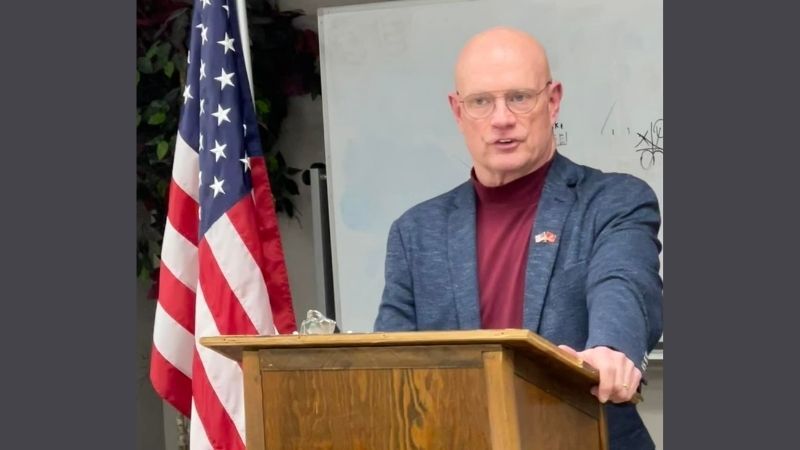State Rep. Steven Holt (R-Denison). | Iowa House of Representatives
State Rep. Steven Holt (R-Denison). | Iowa House of Representatives
Who should vote in elections in the United States? A joint resolution that has received unanimous approval in both houses of the Iowa Legislature wants to make sure only U.S. citizens are permitted to participate in state elections.
State Rep. Steven Holt (R-Denison), who sponsored Senate Joint Resolution 9, said it slightly changes the language to make clear that only citizens can vote in Iowa.
“This important clarification would help protect this fundamental right for the citizens of Iowa,” Holt told Hawkeye Reporter. The Republican represents the 18th House District.
The resolution passed the state House of Representatives unanimously 96-0 on March 15. It also was approved by the Iowa Senate 45-0.
When the Iowa House approved the measure, the Hawkeye Reporter reported that Chris Arps, president of Americans for Citizen Voting, said the “bipartisan and unanimous votes in both the Iowa House and Senate reflect what we’ve seen in our polls and the reality on the ground. Regardless of ideology or party affiliation, there is overwhelming support for citizen-only voting in Iowa.”
Holt, who chairs the House Judiciary Committee, told the Hawkeye Reporter there was another reason for the resolution.
“This resolution brings the Iowa Constitution up to date with current law, reducing the voting age to 18,” he said. “It also allows individuals that will be 18 by the election to vote in the primary.”
In 1996 the U.S. Congress passed the Illegal Immigration Reform and Immigrant Responsibility Act, which prohibits non-citizens from voting in federal elections for president, the U.S. House or the U.S. Senate. The law did not address non-citizens voting in state or local elections.
State by state, the legal language is not as clear. For example, the Maryland Constitution states that “every citizen of the United States, of the age of 18 years or upward, who is a resident of the state as of the time for the closing of registration next preceding the election, shall be entitled to vote in the ward or election district in which the citizen resides at all elections to be held in this state.” Several municipalities in Maryland have subsequently extended voting rights to non-citizens as well.
According to analysis by Ballotpedia, several other states do not currently have clear language specifying that only citizens are eligible to vote and note that several municipalities across the country have moved to allow non-citizens the right to vote in municipal elections.
However, Ballotpedia also highlights that there are states like Colorado that have passed amendments clarifying the citizen voting language. Colorado’s Amendment 76, also called the Citizenship Requirement for Voting Initiative, was approved as a constitutional amendment by the state’s voters in November 2020. It changed language that “every citizen” can vote in Colorado to “only a citizen” can vote. The Amendment won 63% of the vote.
Holt said although Iowa lawmakers unanimously approved the bill, his resolution needs to be passed by the 2023 session of the legislature and then have Iowa voters endorse it before it becomes law.
“SJR 9 must pass the next General Assembly in order to be on the ballot for the people to decide,” he said.




 Alerts Sign-up
Alerts Sign-up